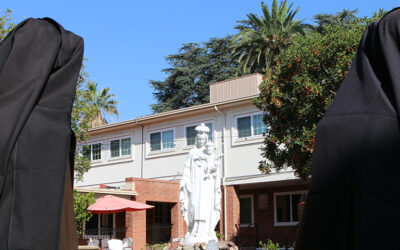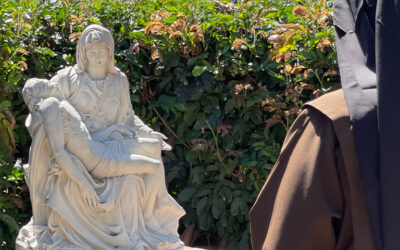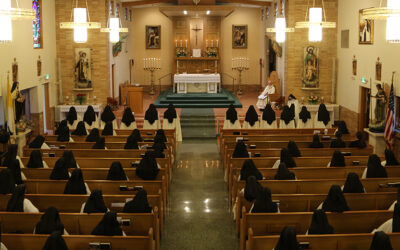Abraham Lincoln, the Church and Unity
Presidents’ Day, the third Monday in February, celebrates the two presidents considered to be the greatest among them all – George Washington and Abraham Lincoln. While Washington played one of the most significant roles in the ratification of the Constitution and the birth of a new nation, fighting for and guiding it through its infancy, it fell to Lincoln to serve as the catalyst to both reunite the country and preserve the union. Both men recognized that with unity comes strength.
Lincoln gave his “House Divided” address on June 16, 1858, upon accepting the Illinois Republican Party’s nomination for United States senator, in the state capitol, Springfield. Lincoln drew on the words of Our Lord: “If a house is divided against itself, that house will not be able to stand” (Mark 3:25). In his introductory words Lincoln stated: “A house divided against itself cannot stand…I do not expect the Union to be dissolved – I do not expect the house to fall – but I do expect it will cease to be divided. It will become all one thing, or all the other.” Commenting upon this address several years later, Lincoln’s friend and law partner, William Herndon, said: “…Lincoln as a statesman, and political philosopher, announced an eternal truth – not only as broad as America, but covers the world.”
The speech painted a stark picture of how dangerous disunion would be and even Lincoln’s friends thought the speech too radical. However, Lincoln would not be dissuaded, answering his friends’ skepticism by saying (in reference specifically to the “house divided” language): “The proposition is indisputably true…and I will deliver it as written. I want to use some universally known figure, expressed in simple language as universally known, that it may strike home to the minds of men in order to rouse them to the peril of the times.”
Although Lincoln lost the senatorial election, two years later, in 1860, he was elected President, which little more than a month after his inauguration, triggered a chain of events that prompted seven Southern states to secede and form the Confederacy, thereby splitting the Union and culminating in the outbreak of the Civil War. Throughout the bloody and devastating conflict, Lincoln’s goal steadfastly remained the preservation of the Union. He never shied away from reminding his countrymen that liberty and truth went hand-in-hand with the inherent worth and dignity of each human person; that liberty without truth led to the loss of the dignity of human life and ultimately to war.
Lincoln’s message in his “House Undivided” address transcends his own time and remains relevant to us today, as more than a century and a half later, there is another sort of war being waged – that of the culture of death – a war in which the Catholic Church stands on the front lines.
Despite the ever-increasingly polarized climate, the Church will continue to speak the truth about what the consequences of the culture of death are. The unborn, the terminally ill, the frail elderly, the disabled and now even children are all threatened by the culture of death. In combating the culture of death, it must be clearly understood (“…. that it may strike home to the minds of men…) that the Church and Christians cannot be a “house divided against itself” if the fight to protect life is to be effective. As there was real danger in dissolving the United States, so too, is there danger in disunity in fighting against the “peril” of our time – the culture of death (“…in order to rouse them to the peril of the times.”).
To promote the culture of life effectively, it is not compatible for some Christians to accept elements of the culture of death – abortion or euthanasia – (“…it will become all one thing….”) while the Church rejects the same (“…or all the other”).
As the war rages on, Christians must remain united and persevere in proclaiming the truth of the sanctity of all life. It can at times become discouraging but then our recourse must be prayer. One of the most eloquent and moving quotations from the pen of Abraham Lincoln reminds us of this very thing: “I have been driven many times to my knees by the overwhelming conviction that I had nowhere else to go.”




